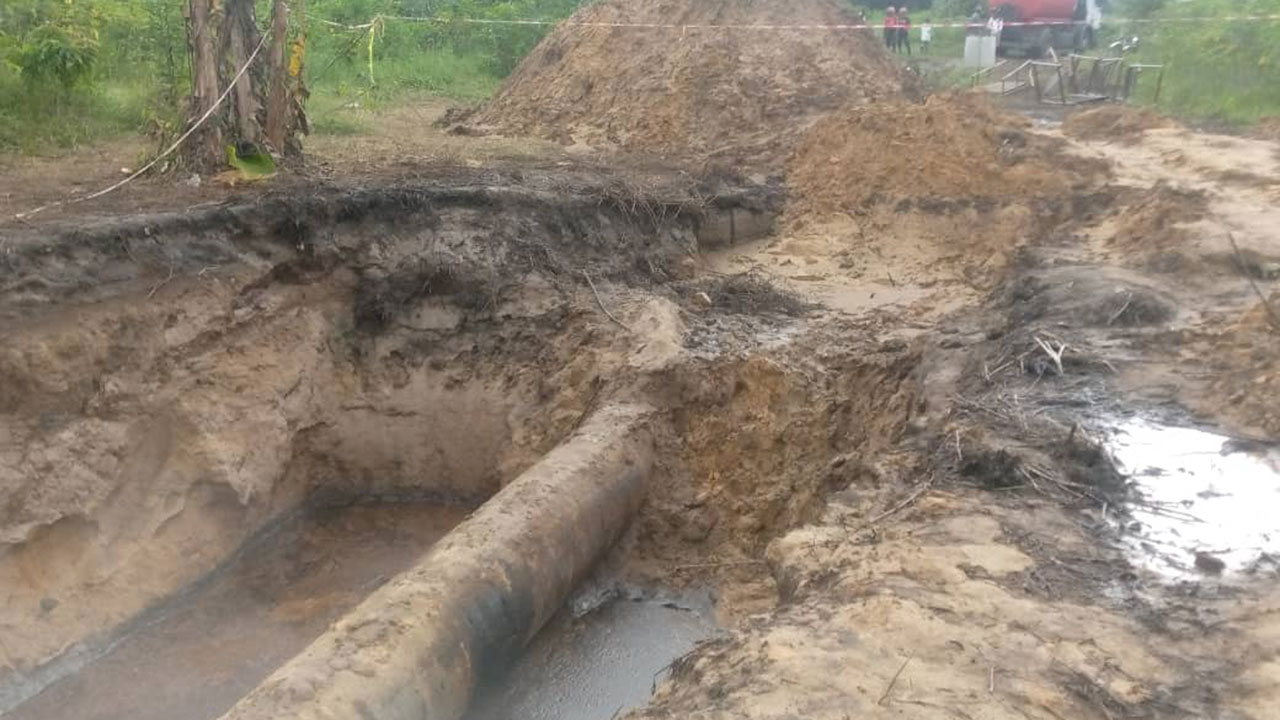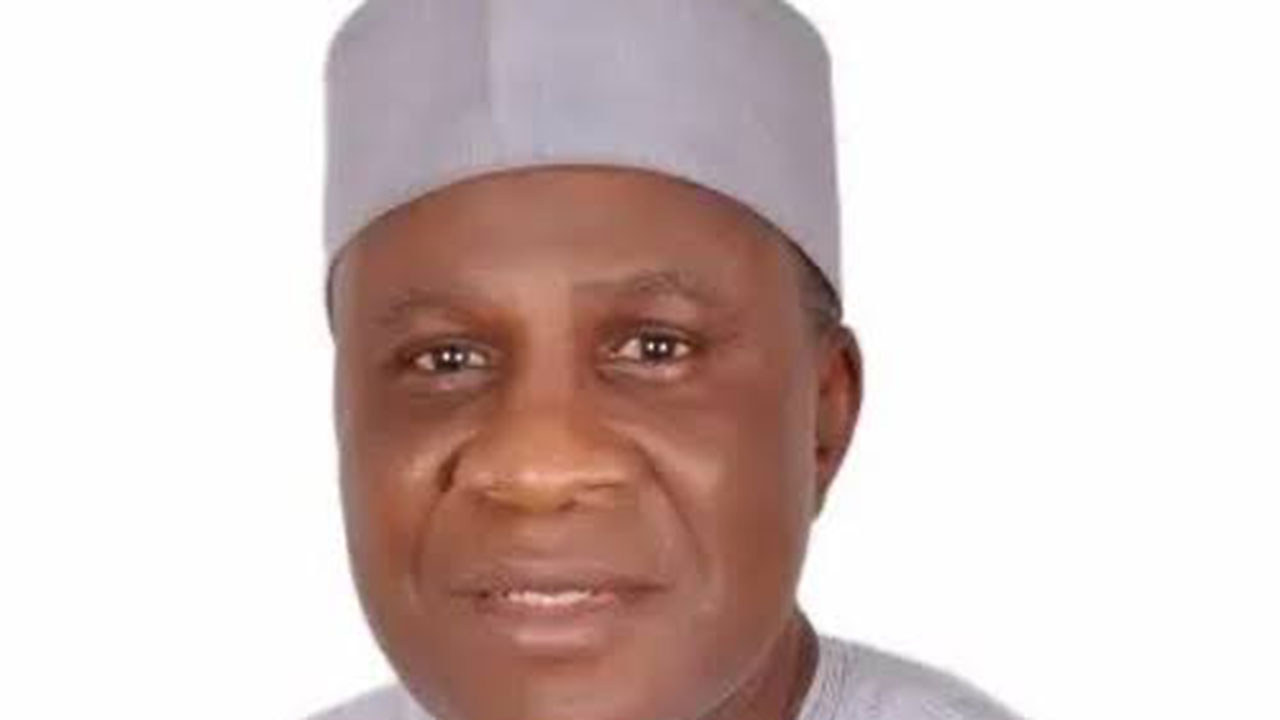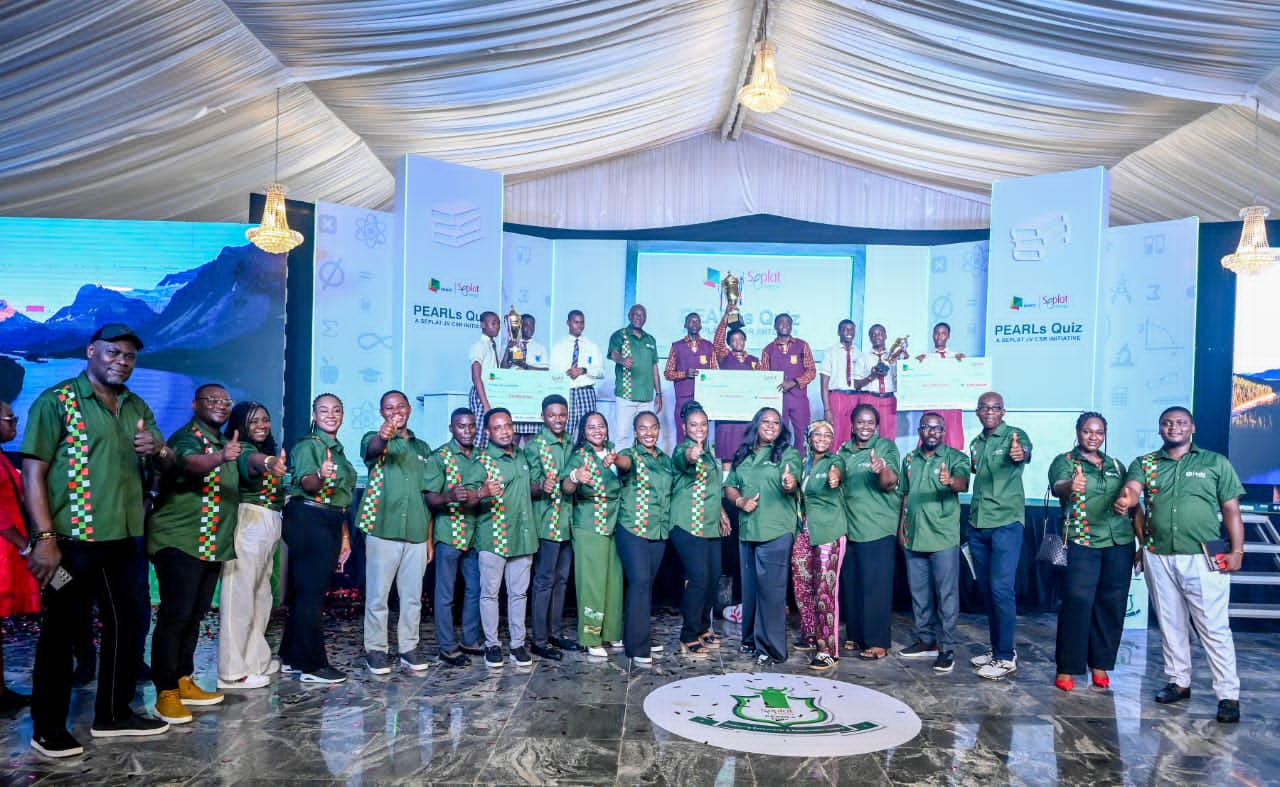 Between August 2022 and August 2023, over 10 oil spills were recorded in already polluted Ogoni Land, spilling into the farmlands and water sources thereby exacerbating the primary needs of the communities, and worsening their already tough economic landscape, ANN GODWIN in Port Harcourt reports.
Between August 2022 and August 2023, over 10 oil spills were recorded in already polluted Ogoni Land, spilling into the farmlands and water sources thereby exacerbating the primary needs of the communities, and worsening their already tough economic landscape, ANN GODWIN in Port Harcourt reports.
Among the top 10 countries that produce oil, including the United Arab Emirates, the United States of America, Saudi Arabia, Canada, etc., there are no frequent reports of oil spills compared to Nigeria where oil spills occur increasingly.
This is so because according to the United States Energy Information Administration, there is periodic maintenance on drilling equipment, shutdowns, and other seasonal cycles. Also, these developed countries are said to require mud from drilling to be enclosed in a containment well, or landfill to prevent seepage, but it is not clear if a regulation restricting oil operations from disposing of drilling waste directly into the River or land.
In Nigeria’s oil-rich Rivers State, Ogoni Land precisely, oil spills appear to mean nothing to oil companies.
Between August 2022 and August 2023, over 10 oil spills were recorded in already polluted Ogoni Communities, thereby impairing the sources of livelihood of the communities and worsening the economic challenges faced by them.
On June 13, 2023, a crude oil spill reportedly occurred at a Trans-Niger Pipeline (TNP) a facility operated by Shell Petroleum Development Company (SPDC) of Nigeria Limited, spilling crude oil into the environment in Aleto Community, in Eleme Local Council.
The crude spilled on farmlands and into the Okulu River, where some rural dwellers fetch water from, destroying farm crops including cassava, yam, and vegetables, which were planted three months before the spill occurred. The aquatic life was also savaged and fishermen in the area were rendered jobless.
The Ogoni people are largely fishmongers and farmers who depend on the environment for their daily needs, including food and water but the frequent oil spills in the area have forced them into acute lack and hunger following a dearth of basic needs to life, especially water and food.
Before this year’s spills, some residents, including pregnant women were still fetching water from some rivers and wells in the area because they were unable to buy potable drinking water due to lack of money, harsh economy, and hike in prices of items.
Just five days after the Aleto spill, another pipeline in Eteo Community operated by SPDC in the same Eleme Local Council burst on June 18, 2023.
Sadly, three months after the spill occurred, the National Oil Spill and Response Agency (NOSDRA) has not carried out investigations on the cause of the spill in Eteo, and possibly advice on remediations. This has left the community in a tense situation.
Established in 2006, NOSDRA is responsible for coordinating and implementing the national oil spill contingency plan and establishing the mechanism to monitor and assist or, where necessary, direct the response.
Interactions with some of the residents including the Chairman of the Community Development Committee (CDC) Eteo, Mr. Fortune Chutte, show that the people feel abandoned by the government and the oil companies.
He reasoned that the government is just interested in their resources and not concerned about their lives and the environment.

“I feel so bad because it is like they are only interested in our resources and human lives do not matter to them, our water, farm are no longer accessible, every part of our environment is devastated and gone,” Chutte alleged.
“We can’t drink water from the streams anymore, and rainwater is very dark and cannot be used; nothing is safe in our land again; everything we had has been taken away from us. We have pleaded and shouted yet nothing has been done. I do not understand if there is government in this country,” the CDC Chairman lamented.
Shell recently announced that it would pay €15 million to farmers in three Niger Delta communities as compensation for damage to their farms as a result of the oil spill in compliance with a Dutch Court ruling.
The Guardian recalls that a Dutch court in 2021 ordered the international company to pay the farmers compensation over the oil spills that took place between 2004 and 2007 in their villages. Sadly, in Nigeria, no one appears to be moved by the tears of the oil spill-affected communities.
It was also gathered that Shell in 2015, paid £55 million as of court settlement to some devastated communities in the Niger Delta region.
Further inquiries show that the latest spill occurred on Friday, August 18, at the Sugi area of Bodo Community, in the Gokana Local Council, close to where multiple oil spills were recorded in recent times on the Trans-Niger Delta pipeline, operated by SPDC.
There had been a series of oil spills in the Ogoni axis of the state last year. A JIV report revealed that Shell spilled five barrels of crude oil into the Bodo Community on August 2, 2022.
Also, on August 24, 2022, a heavy spill from a facility operated by Shell was reported, while in September and October last year, crude oil spills were also reported in Bodo Community in Gokana Local Council.
Findings by The Guardian show that most of the spills were a result of equipment failure, while some happened due to sabotage. Some pipes that were laid in 1958 when exploration activities began in the region were yet to be changed. This is unlike what is obtained internationally, where routine, steady maintenance of equipment is the basic minimum.
During a tour of some sites in the Bodo Community with Damien Gbogbara, the Executive Director of Eco Defence Alliance, a Community-Based Organisation in Gokhana Council, it was observed that each time there is a spill, Shell will put off the pressure pipe to stop loading thereby making the spill point to be dry while investigations and remediation remained unattended.
Gbogbara said the act was brewing up silent anger among the community people because they felt mistreated.
“The act has brought so much panic in our area, the environment is tense and the people are agitated over the negligence of the government and the polluters,” Gbogbara said.
Meanwhile, continuous environmental degradation and abject neglect in Ogoni Land in the past resulted in a protracted crisis between the firm (Shell) and the communities which forced the company to vacate Ogoni Land in 1993.
However, some pipelines are still active in Ogoniland including the Trans-Niger Pipeline, which crosses from Ogoni Land, and is used to convey crude from oil fields in other areas through the communities to the export terminals in Bonny.
For renowned Niger Delta environmental activist, Ann Kio Briggs, the multiple spills recorded in the Niger Delta, especially in the Ogoni axis amounts to “total recklessness on the part of the oil companies.”
She told The Guardian: “The issue of oil spills is an issue that is unacceptable; it is a determined recklessness on the part of oil companies, and total disregard by the Federal Government because they are partners with the oil companies.”
Briggs who averred that some oil pipelines that were laid in 1958 are still underground, leaking with no attention queried: “When last did you hear about oil spill in Saudi Arabia, or Dubai? They have oil, so these companies cannot do it anywhere else in the world, they are doing it in the Niger Delta. I always ask, is it because we are black that they find it necessary to disregard us? They spill the oil knowing full well that the spill is killing our people.
Oil Spills Breeding Poverty
Undoubtedly, the repeated spills and their effects on crop yields have led to a decline in local food production generally and deepened poverty in communities in the Niger Delta.
A Multidimensional Poverty Index (2022) report by the National Bureau of Statistics, (NBS), shows that a high level of poverty has continued in the oil-rich Niger Delta Region.
The report reveals that the Akwa Ibom, Rivers, and Cross River states are the worst hit, with 5.08 million, 4.4 million, and 3.44 million people respectively living in multidimensional poverty.
In Rivers State, the 4.4 million people living in multidimensional poverty account for 62.4 per cent of the state’s estimated 7.47 million inhabitants. Cross River State also struggles significantly, with 3.44 million people living in multidimensional poverty, constituting a staggering 75.6 per cent of the state’s population.
A 30-year-old mother of two who has suffered the effects of the oil spill, Mrs. Veronica Barine, narrated her ordeal with incessant oil spill to The Guardian.
While peeling melon in front of her house in the Bodo Community, she said: “I planted Okro, yam, and cassava on my farm, and two months after the planting, the spill occurred and everything died.”
Senebari Michael, another indigene of the area recalled: “When we were growing up, we noticed that our parents harvested huge tubers of yam and cassavas, but now, there is nothing we plant that germinates and produces yields due to frequent oil spills.

“There is so much hunger in Ogoniland, nothing germinates; Bodo people do not have any source of income right now because since the spill occurred, neither Shell nor the government has done anything.”
Speaking on the unending cycle of oil spillage, an associate professor and Head of the Economics Department at the University of Port Harcourt, Pete Medee, said, it is sad that host communities are thoroughly neglected.
He said: “The country is drifting far away from supervision and regulation, and because the current situation is characterised by a high level of poverty and unemployment, a lot of comprise is being done on the part of the oil companies, and the regulating agencies rather than strengthen supervision.”
“So you realise that those who are supposed to supervise are either hungry and over-dependent”
Medee, who served as former Commissioner for Energy and Natural Resources in Rivers State, charged the government to be more responsible, stressing that people are not taking government seriously in this part of the world because government appears not to be responsible.
“These types of things are not seen in other countries because government is responsible, when a government is doing what it is supposed to do, people will take it seriously. One of the major problems in Nigeria is that the rights and powers are vested only in the Federal Government, the States have little to do.”
He recalled that when his team under former Governor Nyesom Wike took the fight against illegal bunkering to the villages, the issues of black soot in the state were reduced.
Mounting Economic Losses
ACCORDING to NOSDRA data in January this year, oil companies operating in the country lost N803 billion worth of crude oil to spills suspected to have stemmed from sabotaged pipelines and operational issues in 2022 making it the highest in three years.
The data from the oil spill agency further indicated that the country lost N362 billion in 2020, N674 billion in 2021, and N803 in 2022.
Impact Of Oil Spills On Health
OIL spills contain toxic chemicals and often result in short and long-term health effects. Fish is a very good source of protein, but fish contaminated with crude can be dangerous to health, and even poisonous in the long run.
A study by the United States Environmental Protection Agency (EPA), in 2014, noted that eating fish containing chemical pollutants may cause cancer, liver damage, birth defects, and other serious problems.
A consultant obstetrician, gynaecologist, and Executive Director of Mother and Baby Global Health Foundation, Dr. Eli Sukarime, stated that there is a relationship between oil spillage, pollution, and pregnancy, while explaining that oil pollution can prevent women from getting pregnant and also cause miscarriages.
“Gaseous pollution contains carbon dioxide and other noxious agents that can affect the uterus and a developing baby. As the pregnancy advances, it can cause some problems generally (congenital anomalies) to the baby.
How Oil Spills Leads To Untimely Deaths
THE repeated oil spills in Ogoni Land not only shatter the economic lives, wreak the health of the people, and breed extreme poverty, it also leads to untimely deaths.
Two pipeline security men assigned to provide surveillance to the oil spill site in the Bodo community were killed on August 26, 2023, by yet-to-be-identified gunmen while others sustained gunshot injuries.
The Guardian gathered that following the lack of investigations by the government and NOSDRA to unravel the cause of the spill, the community people mandated some youths to keep watch over the oil spill site pending investigations into the cause of the spill and repairs on the affected pipeline would be done.
The two persons killed were Wisdom Pilla and Barioma Dutu, while five others who sustained bullet wounds in the attack include; Charles Saago, Tombari Akere, Lekaga Agbi, Oliver Nyimaage, and Barinem Pigalo.
Gbogbara said: “Gunmen shot at the boys that were guarding the pipe to ensure that people do not come and cause further damage to the environment, since then, Shell has not shown up. Shell always has its way in any community that it operates; it has young men ‘work’ for them, and in most cases, they use their loyalists to destabilise the other people who stand against their ill-treatment of the community.”
But for Briggs, “If the Federal Government and the oil companies cannot take responsibility and contain the incessant oil spills, which is killing the people through the hunger that it induces, the poisoned water that they drink, and the poisoned fishes that they eat, and now gun shots from compromised elements among them, then the government and the oil companies should leave the oil alone.
Visibly angry with the situation, Briggs warned that if the government does not take the issue of oil spills, what is happening in the Sahel region of Africa where young men are rising to say no to exploration will happen in Nigeria.
The Coordinator of the Movement for Survival of Ogoni People (MOSOP) in Gokana Kingdom, Celestine Baribefe Viula, who also confirmed the deaths said that the community has reported the matter to the divisional police in Gokana, but nothing has been done.
President of MOSOP, Fegalo Nsuke. described the attack as barbaric, adding that the incident was very painful and unfortunate.
Nsuke urged the Police to investigate the crimes, and to ensure that the perpetrators are brought to book while blaming the SPDC for the incident alleging that “the incident wouldn’t have happened if not for the presence of Shell’s pipelines in the community.
“The latest shooting resulting in two deaths is very barbaric and we strongly condemn these acts of violence. These are all consequences of natural resource extraction. It is unfortunate that while we suffer the consequences of these exploitations, we are told not to talk about the benefits, which are distributed to all states in Nigeria, and we get nothing because our political rights to function within Nigeria as Ogoni people are being denied. We demand an investigation, and we will want to see the outcome of the investigations into these,” he said.
Environmentalist, Shell Disagree on Prevention and Cleanup Efforts
WHILE Shell claims that investigations on the spill sites were ongoing, it denied allegations that it neglected the impacted communities.
Shell spokesman, Adande Micheal, dismissed the allegation of the communities that the firm has completely neglected them. Michael, however, promised to get back through email to explain details of what his outfit was addressing the issues. He never did.
However, an environmentalist and Executive Director, of Youths and Environmental Advocacy Centre, (YEAC-Nigeria), Fynface Dunamene Fynface, disagreed with the Dutch oil firm, saying Shell cannot deny neglecting Bodo Community over multiple crude oil spills that have occurred under its watch in the community.
Fynface who has been monitoring and following up on oil spills issues in the Niger Delta region, said: “Let us pretend not to know that SPDC is still struggling to cleanup the spills for which they paid £55 million as out of court settlement in 2015, and focus attention on the seven spills that have occurred between August 2022 and August 2023.
“For the spills of 2022, Shell is yet to cleanup the spill sites and pay the affected people adequate compensation. The owners of the land where the August 2022 spills occurred in Bodo are currently filling fresh case SPDC due to neglect while Shell is yet to take any concrete steps to address issues relating to the August 18 double spills points in the community to bring about peace”.
He added, that generally, Shell knows that their multiple crude oil spill incidents in the Bodo community alone have overwhelmed them leading to neglect thus contributing to the crisis and killings in the community.
Fynface also stated that the neglect by NOSDRA on the spills will give oil companies the impetus to keep polluting the environment, knowing that nothing would happen.
He alleged that it is either that the agency has been bribed by the polluters or deliberately failed to implement regulations and environmental laws as if there is no government to call them to order.
He further alleged that it is either that the agency has been bribed by the polluters or deliberately failed to implement regulations and environmental laws as if there is no government to call them to order.
NOSDRA Keeps Mute
THE Port Harcourt Zonal Director of NOSDRA, Ime Ekanem, confirmed that the parties concerned have carried out an environmental assessment at the scene of the spill that occurred on June 13 at Aleto community in Eleme Council, however, maintained silence over other multiple spills that have happened in Ogoni Land.
Findings show that even the JIV report on the Aleto spill has not yet been made available to the public.
The United Nations Environment Programme (UNEP) had in 2011, after its assessment of Ogoni Land recommended that emergency measures be put in place and thorough clean-up and restoration of the land to enable the people enhance their wellbeing.
The UN environment report found severe and widespread contamination of soil and groundwater across Ogoniland. In several locations, public health was severely threatened by contaminated drinking water and carcinogens.
In 2016, former Vice President, Prof.Yemi Osinbajo flagged off a $1 billion cleanup and restoration programme.
Osinbajo who represented former President Muhammadu Buhari at the event, announced that legislative and financial framework had been put in place to implement the UNEP Report.
Seven years later, the clean-up projects are still at a very slow pace following the bureaucratic nature and Instability within the Hydrocarbon Pollution Remediation Project (HYPREP), an agency set up by the government to facilitate the process.
The rural dwellers and environmentalists have, however, urged UNEP to monitor the processes of implementing its report.






